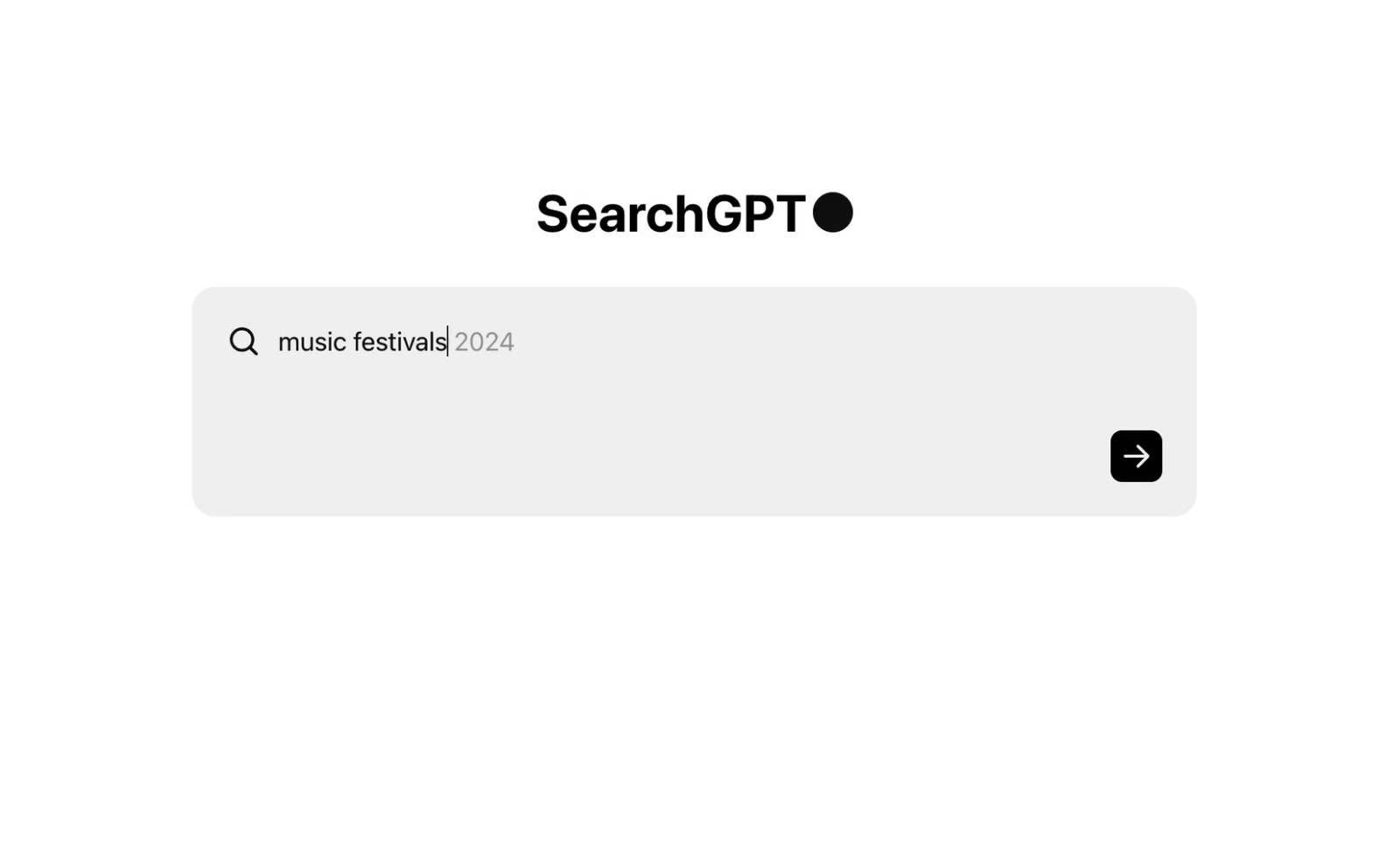OpenAI launches Google Search competitor SearchGPT

OpenAI is testing "SearchGPT," a search engine that uses AI to provide fast, up-to-date answers while citing its sources. The company aims to combine the strengths of its AI models with information from the Web.
OpenAI says it will initially offer SearchGPT to a small group of users and publishers to gather feedback. The company plans to integrate the most successful features directly into ChatGPT in the future. You can sign up for a waitlist to test the service.
SearchGPT aims to answer user queries directly with up-to-date web information, while providing explicit links to relevant sources. As in ChatGPT, users can ask follow-up questions, with the system taking into account the previous context.
Video: OpenAI
The new service is for search only and is separate from the training of OpenAI's generative AI models, according to OpenAI. Sites can appear in search results even if they block OpenAI's training data crawlers.
Google is testing a similar search chat feature with AI Overviews, and Perplexity has offered an AI-based search engine for more than a year. Both have been criticized for inaccurate answers and content free-riding.
OpenAI has addressed the latter concern somewhat in recent months through several publishing deals. One of OpenAI's content partners is The Atlantic magazine, whose CEO Nicholas Thompson now describes AI-powered search as "one of the key ways that people navigate the internet" in the future.
SearchGPT aims to drive traffic to publishers' sites and websites in general by prominently mentioning and linking to sources in search results. According to OpenAI, chat responses include prominent references and links within the text.
OpenAI positions itself as the new gatekeeper of the open web
SearchGPT will likely drive a much smaller percentage of traffic to websites compared to traditional search engines, that's the nature of the beast. If you already know the answer, why click on a website link?
OpenAI, of course, understands this and pays selected publishers to use their content in SearchGPT because they know they could get into even more trouble otherwise.
"Sam and the truly talented team at OpenAI innately understand that for AI-powered search to be effective, it must be founded on the highest-quality, most reliable information furnished by trusted sources," says Robert Thomson, chief executive of News Corp, one of the publishers who get paid by OpenAI.
The impact on publishers and websites that don't make it into OpenAI's select circle ("Preferred Publisher Program") remains to be seen. If successful, this product, or similar products from other companies, could reshape the entire WWW.
AI News Without the Hype – Curated by Humans
As a THE DECODER subscriber, you get ad-free reading, our weekly AI newsletter, the exclusive "AI Radar" Frontier Report 6× per year, access to comments, and our complete archive.
Subscribe nowAI news without the hype
Curated by humans.
- Over 20 percent launch discount.
- Read without distractions – no Google ads.
- Access to comments and community discussions.
- Weekly AI newsletter.
- 6 times a year: “AI Radar” – deep dives on key AI topics.
- Up to 25 % off on KI Pro online events.
- Access to our full ten-year archive.
- Get the latest AI news from The Decoder.